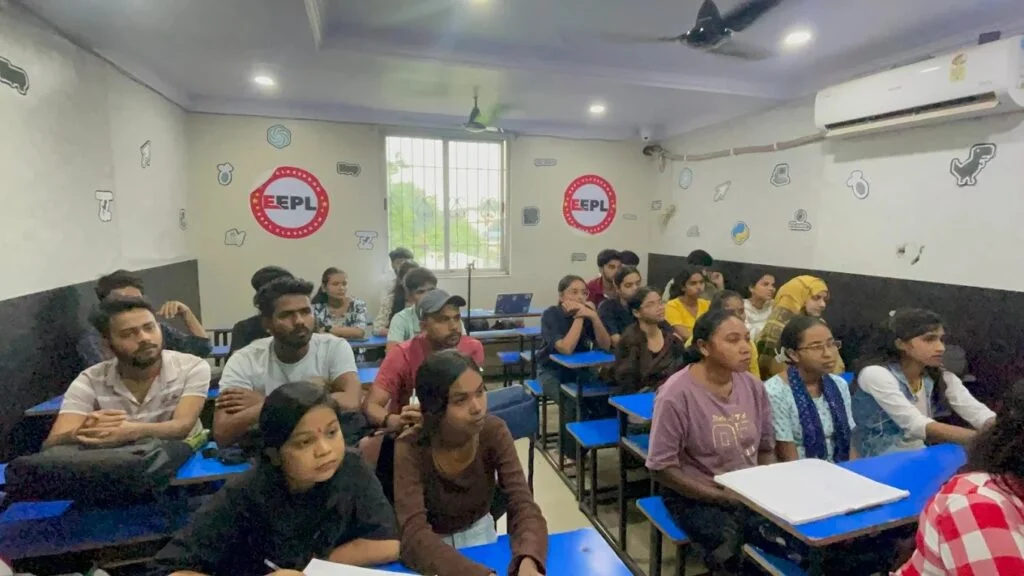Understanding Computer Literacy
Computer literacy refers to the ability to effectively utilize computers and technology to perform a range of tasks, from basic operations to more complex applications. In the modern workplace, this skill encompasses a variety of components, including fundamental computer skills, proficiency in software applications, and the ability to navigate the internet efficiently. The necessity for computer literacy has escalated with the rapid advancement of technology across every industry, making it a fundamental requirement for any career.
At its core, basic computer skills include understanding how to operate various hardware components, manage files, and use operating systems. Proficiency in software applications involves being adept with word processors, spreadsheets, and presentation tools. As many organizations rely on sophisticated software to streamline operations, the ability to navigate and utilize these tools becomes imperative. Furthermore, internet navigation skills are critical, as professionals must be able to research, communicate, and collaborate online effectively.
The importance of computer literacy extends beyond the technical skills necessary to perform a job; it is increasingly highlighted in job descriptions across all fields. Many employers consider computer literacy not only a beneficial skill but a required one for potential candidates. This growing focus reflects the reliance on technology within educational institutions, corporate environments, and service sectors. Those who are competent with computers are often better positioned for career advancement and professional development, as they can adapt to new technologies and take on roles that demand tech-savvy individuals.
In this age of digital transformation, acquiring computer literacy is no longer optional; it is essential for success in any career path. By embracing these skills, individuals enhance their employability and open doors to innumerable opportunities in an ever-evolving job market.
The Benefits of Being Computer Literate
In today’s digital age, computer literacy has become a crucial skill across various industries. One of the primary benefits of being computer literate is the increased job prospects it offers. As businesses rapidly embrace technological advancements, employers actively seek candidates who are proficient with computers and related tools. This proficiency often distinguishes candidates in a competitive job market, opening doors to various career opportunities that may otherwise be inaccessible.
Moreover, enhanced productivity is another significant advantage of computer literacy. Familiarity with software applications and digital tools enables individuals to perform tasks more efficiently. This not only allows employees to complete assignments faster but also contributes to a more streamlined workflow within organizations. Consequently, a computer-literate workforce can boost overall productivity, benefiting both employees and employers alike.
Additionally, improved problem-solving abilities are an inherent benefit of computer literacy. As individuals interact with technology, they develop critical thinking skills and learn how to troubleshoot issues effectively. This capacity to navigate challenges becomes particularly valuable as workplaces increasingly rely on complex systems and software. Employees who can adeptly address technical problems without needing constant external assistance are invaluable assets to their organizations.
Another compelling reason to cultivate computer literacy is the potential for higher earning opportunities. Many employers prioritize candidates with strong tech skills, leading to better pay and career advancement possibilities. This trend underscores the importance of internet skills, not only for individual growth but also for economic advancement in a competitive environment.
Lastly, being computer literate fosters empowerment through a deeper understanding of technology. It enables individuals to learn new tools with greater ease, adapt to evolving workplace demands, and stay ahead in an ever-changing digital landscape. This adaptability further enhances an individual’s career trajectory, ensuring sustained relevance in their chosen field.
How Computer Literacy Can Expand Career Paths
In today’s rapidly evolving job market, computer literacy has become a foundational skill that significantly enhances career opportunities across various industries. Knowledge in specific areas like programming, data analysis, digital marketing, and IT support serves as a gateway to numerous job prospects. For instance, programming skills enable professionals to build and maintain software applications, a critical function in almost every sector from finance to healthcare. As companies increasingly rely on technology, the demand for individuals proficient in programming continues to surge.
Furthermore, data analysis has emerged as a crucial component in decision-making processes. Professionals who can analyze and interpret complex data sets are highly sought after, as their insights can lead to more informed and effective business strategies. This skill set opens doors not only in tech companies but also in industries such as healthcare, where analyzing patient data can improve outcomes, or retail, where understanding consumer behavior drives sales.
Digital marketing represents another area where computer literacy plays a pivotal role. The shift towards online platforms for advertising and sales has made it essential for companies to have employees who are adept in using digital tools to reach target audiences. This includes understanding search engine optimization (SEO), social media strategies, and online analytics, which are integral for any marketing campaign today.
Even in traditionally non-tech industries, computer skills are becoming indispensable. Fields such as education and healthcare require professionals who can navigate electronic health records or utilize online learning platforms effectively. Case studies reveal individuals who have successfully transitioned into these roles after enhancing their computer skills, demonstrating the transformative impact of computer literacy on career trajectories. By embracing technology and fostering computer literacy, individuals can unlock diverse career paths and remain competitive in an increasingly digital landscape.
Resources for Improving Computer Literacy
Enhancing computer literacy is a vital step towards unlocking career opportunities in today’s technology-driven workplaces. A variety of resources and strategies are available to individuals seeking to improve their computer skills. Online courses represent one of the most accessible means to gain knowledge at one’s own pace. Websites such as Coursera, Udemy, and edX offer comprehensive programs covering fundamental skills, software applications, and advanced topics like data analysis and programming.
Tutorials serve as another practical resource for honing computer proficiency. Platforms like YouTube and Khan Academy feature numerous video tutorials which can guide users through specific software applications or general computer usage. These visual aids can significantly enhance understanding, particularly for those who learn best through observation.
For individuals aiming for formal recognition of their skills, pursuing certification programs can prove beneficial. Microsoft, CompTIA, and Cisco provide various certifications that validate competence in specific areas. Completing such programs can not only improve an individual’s computer skills but also enhance their résumé, making them more attractive to potential employers.
Community workshops are another valuable avenue. Local libraries and community centers often host free or low-cost classes aimed at improving digital literacy among residents. Engaging in these workshops not only fosters learning but also provides networking opportunities with peers who share similar career aspirations.
To effectively practice and apply newly acquired skills, individuals should consider creating personal projects, joining online forums, or participating in coding challenges. Setting tangible learning goals can also keep one focused and motivated. Furthermore, staying updated on technological trends through blogs, podcasts, and webinars will help individuals maintain a competitive edge in their respective fields. By actively seeking out these resources and opportunities, individuals can significantly enhance their computer literacy and open doors to a broader range of career possibilities.










